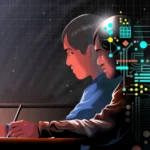In recent years, our world has undergone significant changes that raise complex questions about individual freedoms, societal responsibilities, and the role of government. These shifts have created a landscape where many individuals, particularly those who feel marginalized, grapple with issues of expression, inequality, and the implications of a retreating government. This essay explores these dynamics, highlighting the need for personal accountability and informed action. Fear of Expression One of the most pressing concerns in contemporary society is the fear many individuals experience when expressing their opinions. In various environments—be it the workplace, community settings, or social media—people often hesitate to…...
Sign in with Google to continue reading
💬 Meet Our Members

Antonius Bakker
Antonius "Ton" Bakker, born May 23, 1961, in the Netherlands, is a…

Dr. B.H.S Thimmappa
B.H.S. Thimmappa is a seasoned chemistry professional with extensive experience in developing…

Carl Scharwath
Carl Scharwath, has appeared globally with 210+ publications selecting his writing or…

Sindhu Gopalkrishnan
I love writing as I get to create something beautiful and touch…

Julia Orozco
Poet who love nature and writing poetry.
Tamizh Ponni VP
Tamizh Ponni VP is an ambivert who loves to express her skills…
Support independent journalism. Your membership keeps us going.
In recent years, our world has undergone significant changes that raise complex questions about individual freedoms, societal responsibilities, and the role of government.
These shifts have created a landscape where many individuals, particularly those who feel marginalized, grapple with issues of expression, inequality, and the implications of a retreating government. This essay explores these dynamics, highlighting the need for personal accountability and informed action.
Fear of Expression
One of the most pressing concerns in contemporary society is the fear many individuals experience when expressing their opinions. In various environments—be it the workplace, community settings, or social media—people often hesitate to voice their thoughts due to potential repercussions. This fear is particularly pronounced among those who depend on their employers or influential individuals for their livelihood or social standing.As a result, meaningful discourse is stifled, leading to polarization and a lack of understanding between different groups. When individuals feel they cannot speak openly, the fabric of society weakens, making it difficult to address shared challenges. Encouraging a culture of open dialogue and respect for diverse opinions is essential for fostering unity and collaboration in a world that often feels divided.
Responsibility and Capability
The expectation that all citizens can navigate the complexities of modern society poses significant challenges. Not everyone possesses the same level of intelligence, decision-making skills, or access to resources. This discrepancy becomes particularly evident when individuals are faced with complex systems—whether in legal, financial, or technological realms.As society evolves and becomes more intricate, the gap between those who can effectively manage these complexities and those who struggle widens. This situation can lead to unintended consequences, especially for individuals who may not have the skills or knowledge to make informed decisions. Addressing this disparity requires an emphasis on personal accountability and self-advocacy, empowering individuals to seek out the knowledge and support they need to navigate their circumstances.
Inequality and Poverty
Rising levels of poverty and the challenges faced by lower-income individuals are increasingly urgent issues. Many individuals lack access to information and resources, exacerbating their situations and making them vulnerable to fines and penalties. This vulnerability is particularly concerning in a world where financial stability is increasingly tied to one’s ability to navigate complex systems.The correlation between poverty and the imposition of fines is alarming. Individuals who struggle financially are often the first to face consequences for minor infractions, compounding their challenges. For instance, a simple traffic violation can escalate into a debilitating financial burden, particularly for those living paycheck to paycheck. Breaking this cycle of poverty becomes nearly impossible when systemic barriers continue to entrench their difficulties.
The Role of Government?

Retreating Government
The concept of a "retreating government" has gained traction in discussions about the future of governance. As governments reduce their support and services, questions arise about which protections should remain and who will step in to fill the gaps. Citizens may find themselves managing increasingly complex challenges without the necessary infrastructure to support them.The implications of a retreating government are profound. Essential services—such as education, healthcare, and social support—may become less accessible, particularly for vulnerable populations. This lack of support can exacerbate existing inequalities and leave individuals to navigate a challenging landscape on their own.
Enforcement Disparities
Another significant concern is the disparity in enforcement faced by different groups within society. When similar actions yield different consequences for individuals based on their socio-economic status, education level, or other factors, it fosters distrust in institutions. This perception of unfairness can lead to social unrest and a breakdown in the social contract between citizens and their government.For example, lower-income individuals may face harsher penalties for minor infractions, while wealthier individuals might evade similar consequences due to their resources or connections. This disparity breeds resentment and undermines the legitimacy of laws and regulations. It is essential for governments to ensure that enforcement practices are fair and equitable to maintain public trust.
Moving Forward
The intricate balance between individual freedom and societal responsibility is a challenge that demands our attention. As we navigate the complexities of modern life, fostering an environment where everyone feels heard and empowered is essential for creating a more equitable society. By encouraging open dialogue, addressing disparities, and emphasizing personal accountability, we can work toward a future where all citizens have the opportunity to succeed. It is a challenging task, but one that is crucial for the well-being of our communities. What effective steps can we take to address these pressing issues? Engaging in discussions and collaborating on solutions is a powerful starting point.










